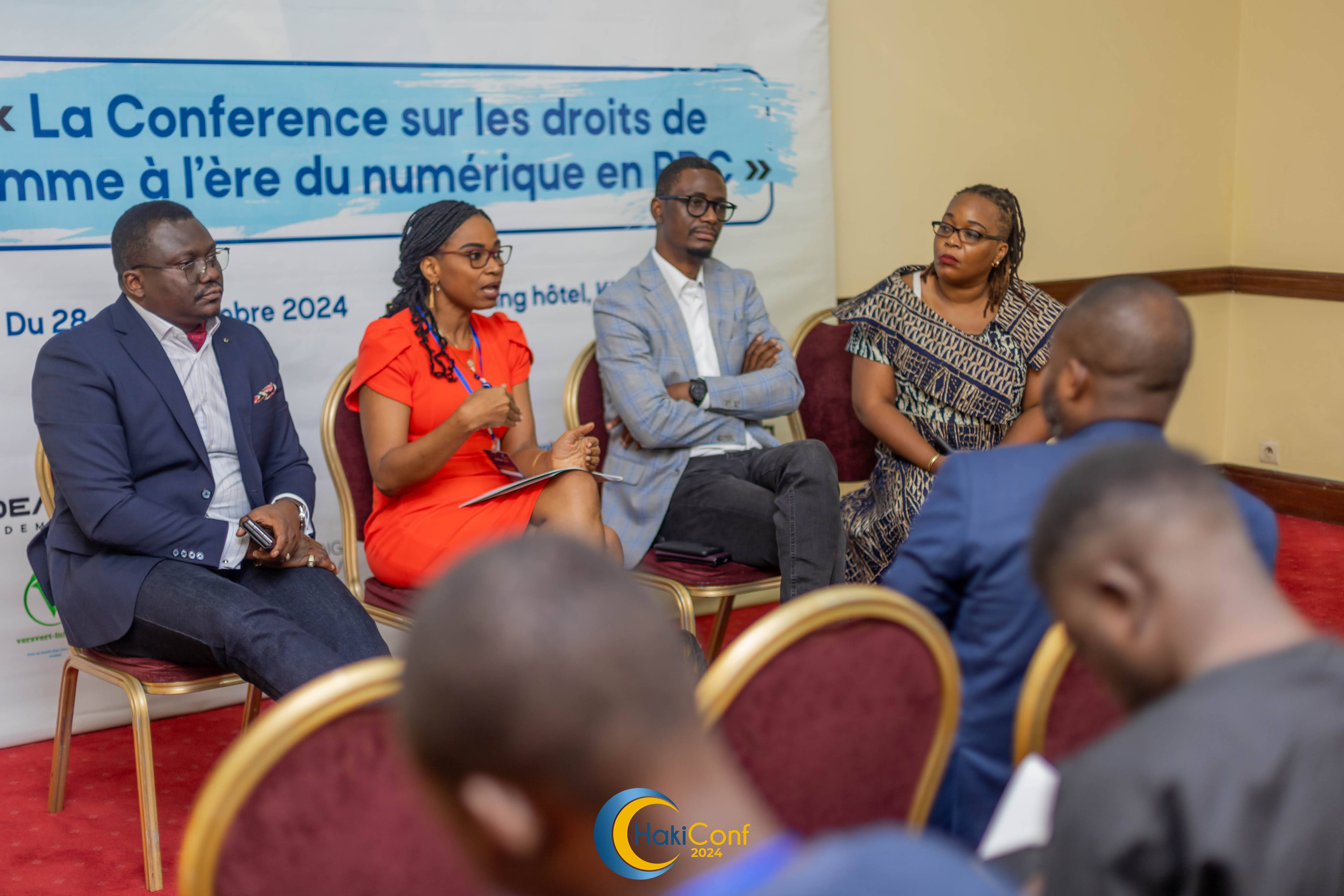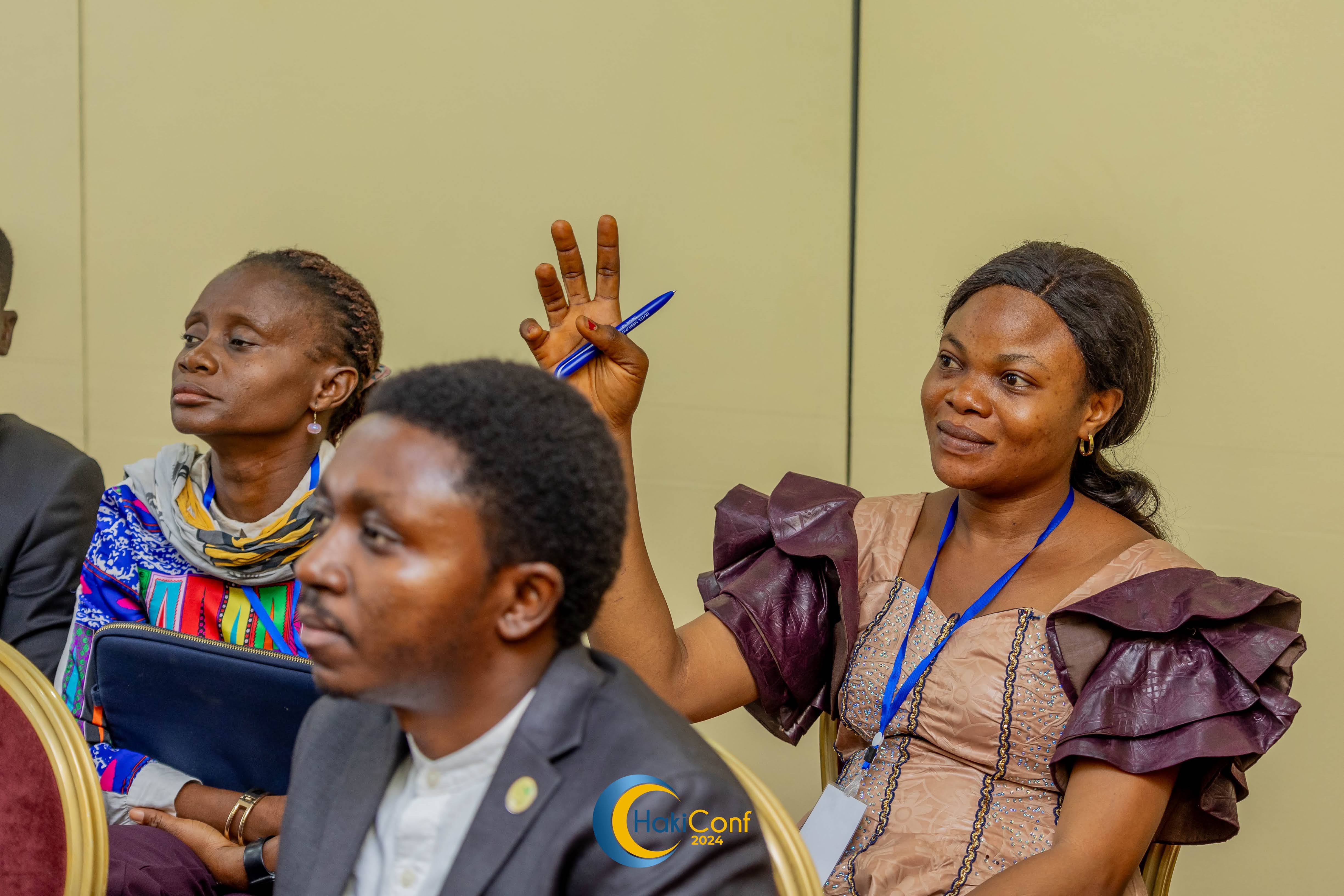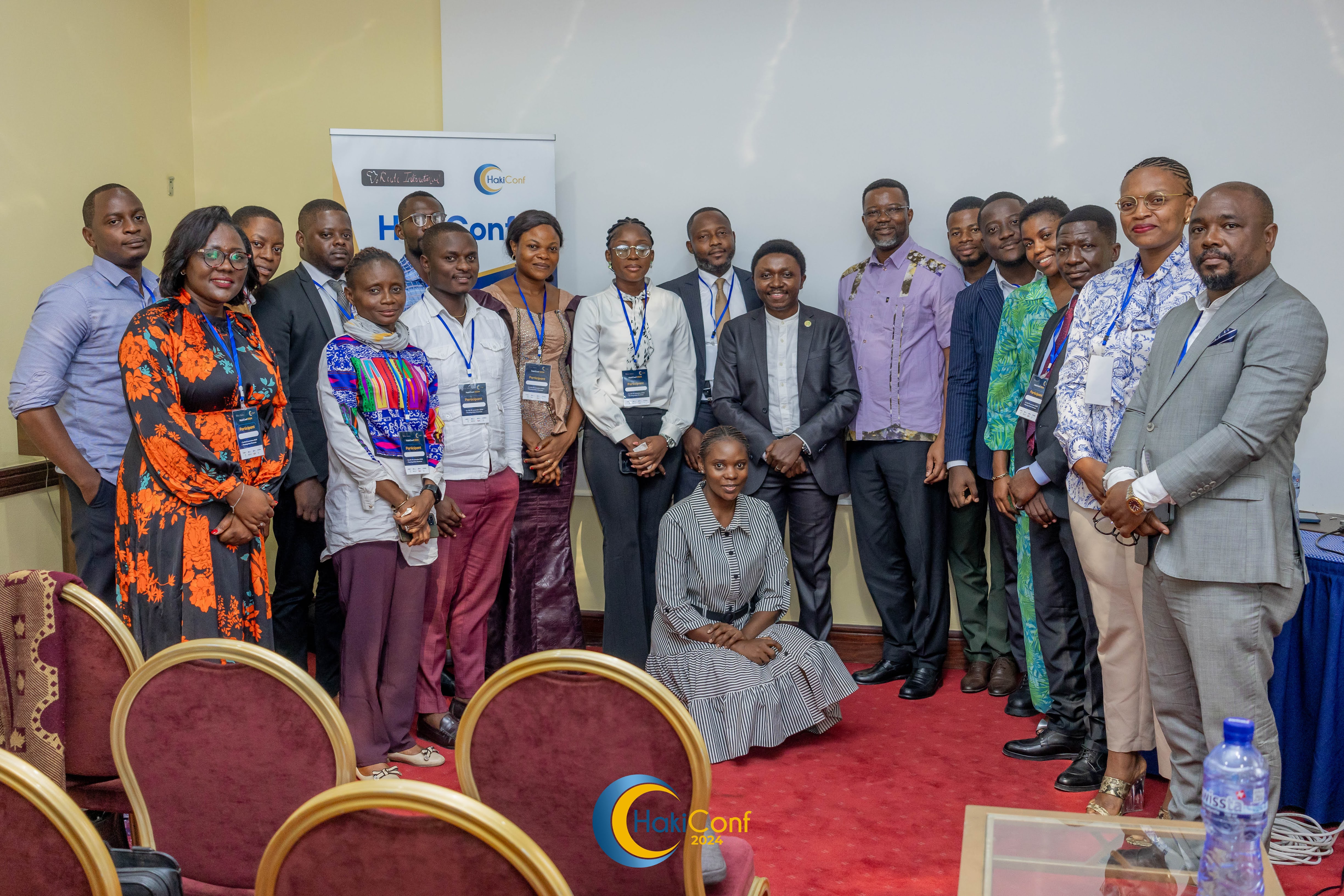La République démocratique du Congo (RDC) doit actuellement faire face à un défi de taille en matière de violations des droits numériques. Un récent Rapport conjoint des parties prenantes soumis à l’Examen périodique universel fait ressortir qu’en RDC, aucune loi ne porte spécifiquement sur la cybersécurité et les questions de cybercriminalité. Ces domaines sont actuellement du ressort de la Loi relative aux télécommunications et aux TIC de 2020 ainsi que du Code du numérique de 2023, dont l’application se révèle insuffisante. Des lacunes considérables subsistent en matière de répression de la fraude, d’autant que selon le rapport, « certaines organisations ont constaté une tendance préoccupante vers des accusations criminelles pour avoir critiqué des actions gouvernementales, imputées à des journalistes et individuels, pour diffamation, diffusion de « fausses informations » et publication de rumeurs qui, bien que non fondées, auraient soit-disant provoqué l’alarme parmi l’opinion publique. »
Malgré la gravité de la situation, les violations des droits numériques restent un problème invisible pour nombre de responsables politiques, de régulateurs et les forces de l’ordre, et encore trop peu exploré dans de nombreux milieux qui se consacrent pourtant aux droits humains.
Dans le but de sensibiliser aux enjeux de cette question, le membre d’APC Rudi International a organisé en RDC HakiConf, la conférence emblématique de l’organisation en matière de droits numériques. Cet événement annuel incontournable rassemble différents acteurs autour du renforcement des capacités et de la mise en réseau afin de mener le pays vers le niveau supérieur. HakiConf a, depuis son lancement en 2018, servi de plateforme essentielle pour sensibiliser et renforcer le plaidoyer autour des enjeux et opportunités que les technologies numériques peuvent apporter.
En 2024, Rudi International a organisé la cinquième édition de l’événement avec le soutien d’une subvention secondaire d’APC. Organisée pour la première fois à Kinshasa, la capitale, HakiConf 2024 a marqué un tournant pour Rudi International mais aussi pour l’écosystème plus large de la société civile, des professionnels du droit, des entreprises et régulateurs qui s’engagent dans le domaine des droits numériques en RDC. Axée sur le concept de violations des droits numériques, HakiConf 2024 a donné à la communauté une occasion de mieux connaître les droits numériques, les différentes formes de violations aux droits et les cadres juridiques auxquels recourir.

La décision de déplacer la conférence à Kinshasa en 2024 était stratégique, visant à travailler directement avec les responsables politiques nationaux, les organismes de régulation et les partenaires internationaux basés dans la capitale. « Organiser à Kinshasa une conférence sur les droits humains à l’ère du numérique est très significatif, étant donné l’importance que cet événement représente pour nous en termes de plaidoyer et le fait que la capitale soit le lieu de résidence des responsables politiques, ce qui nous permet de les trouver plus facilement, » indique Arsène Tungali, directeur exécutif et cofondateur de Rudi International. « Avec une conférence à Kinshasa, on peut obtenir la présence de ministres, de membres du parlement, de diplomates, etc. qui sont nos cibles de plaidoyer et dont les actions sont susceptibles d’apporter le changement pour lequel nous travaillons. »
Ce déplacement, s’il a posé quelques difficultés d’ordre logistique et politique, a considérablement amélioré la visibilité et l’impact de la conférence. La présence du président de l’Agence de régulation des télécoms et d’un membre du Parlement, ainsi que des parties prenantes de la société civile, du secteur législatif, du monde universitaire et du secteur privé, ont donné le signal d’un nouveau niveau de reconnaissance des droits numériques, désormais considérés comme une question d’intérêt national.
Comprendre les violations aux droits numériques
L’un des principaux objectifs de HakiConf 2024 consistait à sensibiliser à la question des violations des droits numériques, souvent trop peu examinée dans les cercles des droits humains de RDC. La conférence a permis de remédier à cela avec la présentation aux praticien·nes du droit du concept des droits numériques, soulignant leur intersection avec le respect de la vie privée, la liberté d’expression et l’accès à l’information. Pour nombre des 18 avocats et avocates ayant suivi le programme de pré-conférence, il s’agissait d’une première. Comme le commente un avocat à la fin de sa formation, « La formation sur les droits numérique m’a ouvert les yeux… Je souhaite maintenant me spécialiser dans ce nouveau domaine pour pouvoir être en mesure d’aider la communauté pour toute atteinte à leurs droits numériques. »

Au cours des neuf sessions organisées dans plusieurs salles, avec des panels portant sur les discours de haine, les écarts de connectivité, les technologies émergentes et les cadres juridiques, les participant·es ont pu se faire une idée de leurs droits mais aussi de leurs responsabilités à l’ère du numérique. L’engagement public du régulateur à prendre désormais en compte les recommandations de la HakiConf dans ses décisions montre à quel point de tels dialogues peuvent avoir d’influence sur le plan d’action national.
Créer un espace pour de nouvelles voix
HakiConf est organisé dans un souci d’accessibilité pour toute personne désireuse d’y prendre part. En 2024, plus de 80 personnes ont pu y assister, sans compter l’engagement à distance via YouTube et Facebook. De plus, « la participation à HakiConf est gratuite et il suffit de compléter un formulaire d’inscription qui permet d’évaluer au cas par cas le niveau de compréhension des différentes thématiques et le potentiel de chaque candidature à rejoindre le mouvement » explique Tungali. « Le comité de sélection établit ensuite la liste des participant·es en fonction de notre capacité à les héberger (questions de logistique) et pour finir, aboutir à un bon dosage avec la participation à la fois de personnes expérimentées et de gens qui sont là pour apprendre. »
Rudi International s’adresse également directement à certaines personnes clés, leur offrant de l’aide pour leur inscription, des lettres d’invitation et différents types de soutiens permettant de veiller à ce que l’événement soit aussi inclusif que possible. « Les discussions touchent tout le monde (sur place mais aussi en ligne puisque l’événement est diffusé en streaming) ; HakiConf est en effet un lieu d’apprentissage sur les droits numériques, d’échanges d’opinions sur l’état actuel des choses dans le pays et la région ; et les gens en repartent avec des résolutions ce qu’ils peuvent faire pour apporter leur contribution, » affirme Tungali.
Il est important de noter que HakiConf se place désormais parmi les principales conférences sur les droits numériques en Afrique francophone. Sa portée s’étend bien au-delà de la RDC avec chaque année une participation internationale, provenant principalement des pays francophones d’Afrique.
Renforcer le pouvoir dans un paysage fragmenté
Alors que de plus en plus de communautés se connectent et que les menaces qui pèsent sur les droits numériques deviennent plus complexes, les initiatives comme HakiConf s’avèrent essentielles. Elles permettent en effet de démontrer que la gouvernance numérique basée sur les droits est un objectif réalisable lorsqu’il se fonde sur des partenariats locaux et un plaidoyer stratégique.
La société civile en sa qualité de rassembleur occupe un rôle particulièrement décisif du fait de la domination fréquente des gouvernements et des entreprises dans l’écosystème du numérique. L’engagement stratégique de partenaires tels que Meta, Paradigm Initiative, Kadea Academy et des organisations locales comme Tech and Law Society a permis à Rudi International de montrer combien la collaboration intersectorielle peut amplifier la portée et l’impact des efforts de plaidoyer. Malgré l’absence décevante des principaux ministres et diplomates du gouvernement en raison de conflits d’emploi du temps lors de la récente conférence, les bases posées pour une future collaboration sont prometteuses.
Le prochain HakiConf 2025, en cours de préparation, intégrera les leçons apprises et une meilleure visibilité par rapport à l’événement tenu récemment. « L’intérêt qu’il a suscité dans les médias locaux et les commentaires reçus suite à la couverture médiatique nous ouvrent un nouvel avenir en tant qu’organisation à l’aube de la prochaine édition prévue en novembre 2025 qui se tiendra à Kinshasa pour la seconde fois, » déclare Tungali. Il convient en outre d’ajouter que le modèle de HakiConf s’adapte aux besoins d’autres organisations de la société civile en Afrique et au-delà, à travers des formations destinées à renforcer les capacités des groupes de défense des droits numériques, une participation ouverte, un engagement multipartite et des partenariats médiatiques.
Tourné vers l’avenir, Rudi International s’appuie sur son réseau renforcé pour mener des actions à visée stratégique en partenariat avec Paradigme Initiative. Plusieurs affaires de droits numériques qui affectent des citoyens congolais, en cours de préparation, pourraient créer des précédents pour ancrer davantage les droits numériques dans le cadre juridique du pays. « Il s’agit d’un résultat important de la conférence de cette année, » souligne Tungali. Espérons que cet investissement dans le dialogue et la formation des avocats permettra aux organisations de trouver des alliés dans les tribunaux pour garantir les droits de la population.

Cet article est tiré des informations fournies par Rudi International dans le cadre du projet « HakiConf 2024 », adaptées au format de la chronique « Semer le changement ». Cette chronique présente les expériences de membres et partenaires d’APC qui ont bénéficié de financement proposé dans le cadre de programmes de subventions secondaires d’APC, avec le soutien de l’ASDI, et de subventions secondaires à travers d’autres projets d’APC.
Cette histoire vous a inspiré·e à semer les graines du changement dans votre communauté ? Partagez votre histoire avec nous à l’adresse communications@apc.org
Image de couverture : Photo reproduite avec l’aimable autorisation de Rudi International/HakiConf